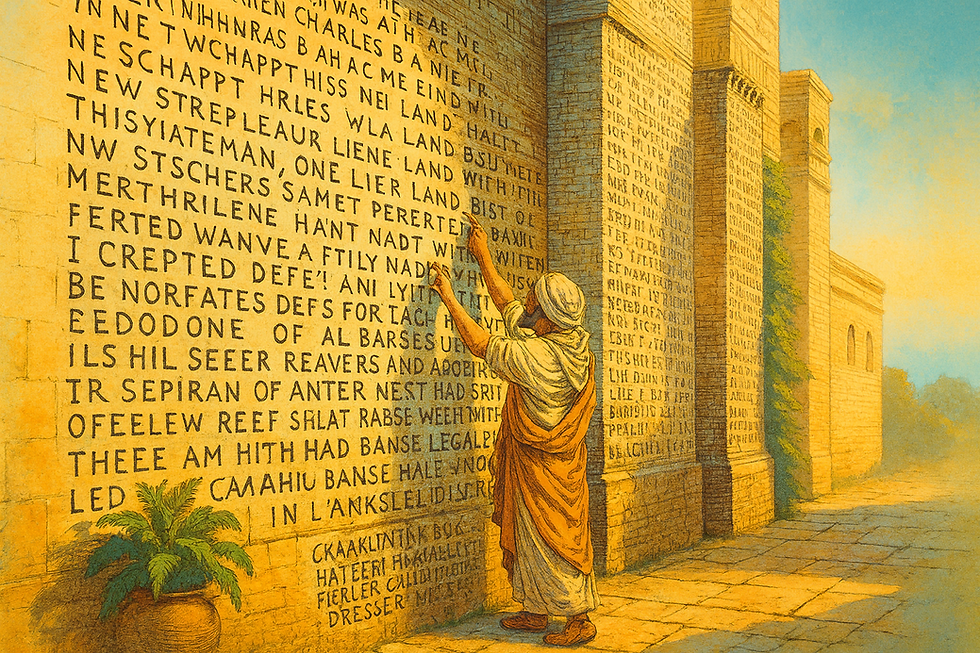Jake Played the Credit Game Early — and Won Big
- Vinci Learning
- Oct 23, 2025
- 2 min read

Jake and Ryan were college roommates. They took the same classes, got the same grades, and stayed up late playing the same video games. They were practically twins...except for one “small” difference: Jake started building credit at 18. Ryan didn’t.
After graduation, both landed great jobs and walked into the car dealership confident. Jake’s solid credit score earned him a low-interest loan and an affordable monthly payment. Ryan, with no credit history, had to pay hundreds more for the same car.
When it came time to find apartments, Jake was approved instantly. Ryan wasn’t so lucky. He was denied again and again until he finally settled for a pricier, smaller place in a rougher neighborhood.
Five years later, both decided to buy homes. Jake was pre-approved in days. Ryan’s applications were denied or came with sky-high interest rates. Over dinner one night, Ryan sighed, “We make the same money so why do I feel stuck?” Jake already knew the answer: it was credit.
Ryan’s story isn’t unique. It’s the quiet reality for millions of young people who were never taught how credit works. This isn’t about being smarter. It’s about knowing the rules sooner.
Credit is your financial reputation. It’s how the world decides whether to trust you with borrowed money. And it’s not a new idea. In ancient Mesopotamia, merchants recorded debts on clay tablets. In medieval Europe, loans were made based on a person’s reputation. By the 1900s, stores handed out bulky charge cards and today, we buy burritos with a tap of plastic. The tools have changed, but the principle hasn’t. Credit is trust.
So why does it matter? Because credit quietly shapes your life — your access, your options, and your costs. With good credit, things just run smoother: lower interest rates, faster approvals, and more freedom to choose what you want. With bad or no credit, every decision costs more. Jake didn’t make more money than Ryan, he just learned how to play the game earlier.
If you’re just starting out, here’s how to build credit the right way:
Open a starter credit card. Use it for small purchases and pay it off in full each month.
Keep your usage low. Try to stay under 30% of your limit to show your in control.
Pay on time, every time. Even one missed payment can hurt your score.
Credit doesn’t reward wealth. It rewards responsibility. Start now, build trust with every swipe, and your future self will thank you.
Join the Vinci Learning Newsletter for more short, powerful lessons that make money simple, human, and fun. :)
Sources:
British Museum. (n.d.). Tablet: Loan of barley with interest (Old Babylonian; Object 82081). British Museum Collections.


Comments